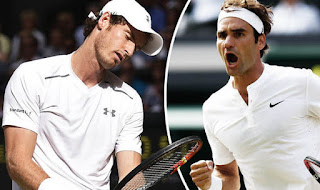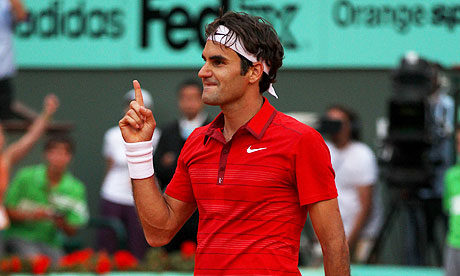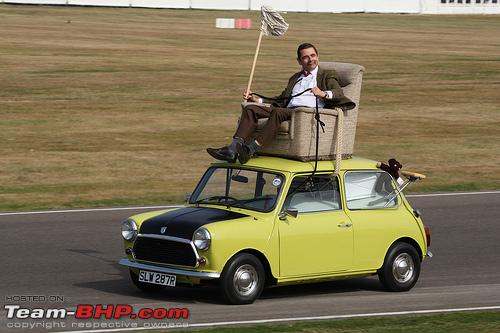I shall start by paraphrasing some words from the British novelist Lawrence Durrell.
"There are three things to be done with a Roger Federer defeat. You can love him, suffer for him, or turn him into literature." (Yes I love Feds, but I'm not like a stalker or anything....)
Apologies in advance if I lurch alarmingly into the wallowing and pitiful cesspool that I was treading water in, for quite some time, after Federer's loss in the Wimbledon final, again.
What I want to discuss is the word "peak" doesn't necessarily mean when an athlete is at their most successful. Case in point the Swiss Maestro.

On July 3rd, what a heavenly day that was, an almost 34yo Federer put in perhaps his greatest ever performance, dismantling Andy Murray on Centre Court in straight sets.
56 winners. 11 unforced errors. 76% first serves. Tennis from another planet. An absolute privilege to behold.
It was up there with his lobotomization of Andy Roddick in the '07 Ozzy Open sf (lost 6 games), bagelling Lleyton Hewitt twice in the 2004 US Open final or ending Novak Djokovic's (YOU'RE AN AWFUL PERSON FOR STOPPING FEDERER WINNING SLAM NO 18! - sorry. Yes he was too good) 43-match winning run in the sf at Roland Garros (2011).
So let's submerge into the tenebrous waters of this murky issue.

Going by the stats in football, the optimum age to be a player in the
World Cup is 27.5. This is around the accepted peak age for the sport.
Cristiano Ronaldo however had his most prolific goal scoring season aged 30, Zlatan Ibrahimovic in his 32nd year, Paulo Maldini, Teddy Sheringham, Pavel Nedved, Fabio Cannavaro, Andrea Pirlo and a littany of goalkeepers have all been credited as peaking in their early to mid thirties, Aberrations? Maybe. But experience and nous improves with age too.

In Cricket, Jacques Kallis, between the age of 33-37, posted his highest batting averages (67.90). This was akin to the likes of Kumar Sangakkara, Michael Hussey and Liz Hurley's former fella, most notably in the 2005 Ashes where Advanced Hair Studio's most famous client took 40 wickets, averaged 19.92 and scored 249 runs, aged 35.
The Klitschko brothers in boxing have said that they felt better than ever past 35 and rugby stars Paul O'Connell, Victor Matfield, Brad Thorne, Tana Umaga and a handful of England's
'Grumpy Old Men' 2003 World Cup winners, would probably concur. Dare I even mention the much maligned Justin Gatlin for his personal best times at the tender age of 32/33? Best not get into the drug issue this time.

Finally, a bit of study KNOWLEDGE from the Institute of Biomedical Research and Sports Epidemiology in la belle France.
"The peak age of performance for athletes in track and field, swimming and (very randomly indeed...) even chess is 26.1."
It would appear that more often than not, an athlete's 'peak' will settle around the mid to late 20's.
Back to tennis!
The average age of the top ten in tennis has shifted from the early 20's in the 80's and 90's to the late 20's (likewise for the top 100), with nine of the top 15 ranked players in or past their 30th year - many of those hitting career highs well past the supposed peak age of bygone years.
At the end of 2007, Federer had accumulated an astonishing 12 slams at the age of 26. From 2004 to 2007 he won a staggering 316 matches and lost a paltry 24 times.
In 2008, mononucleosis and the "big four" came to the... fore and Federer's dominance appeared to have ended. 'Past his best', 'over the hill' and so on so forth.
One morning Federer awoke to find his forehand wasn't as deadly. His serve wasn't as pinpoint and his movement mirrored the QE2's turning ability. Fat chance! Look at 33yo Serena Williams for pity sake!
His younger opposition had improved significantly and had developed a baseline game to blunt the Swiss army knife.

His high risk game was being repelled by metronomic consistency and superior court coverers (not those lucky schmucks who rake in the wonga and occasionally have to get off their rumps and pull the court covers on if it rains).
The Swiss didn't have to adjust his game to win before, but in recent years he has had to a great deal.
Who else has been this successful in going from being brought up serve and volleying, to baseline dominance to hanging with the best athletes the game has ever seen. Not Johnny McEnroe. Not Mats Wilander. Not Pete Sampras when serve and volley was on the way out.
Yes his results weren't as good but that doesn't mean he himself had stopped improving. The game is faster now, players hit harder, move better, are more professional and the game has more depth.
Only when 30 came a calling, did the maestro appear to have lost a step. If you play a sport for hours on end you learn a thing or two in how to counter-act that.
This is what Federer has done.
His former coach Paul Annacone and Federer have said he is now a better player than before, certainly a more well rounded one.

Some may see this as something an impetuous pundit might say but there is merit in it when his serves are more accurate, possesses a more complete net game and is more tactically astute.
He now tries to shorten points, plays with even more variety and is trying to bring back s & v in an era where it's mad to do so with the rise of luxillon string technology - referred to as "cheat strings" by
Pete Sampras when it was introduced over a decade ago.
Time waits for no one unfortunately. You have more off days, as 18-time Grand Slam winner Martina Navratilova admitted, you don't recover as well and fitness levels can drop off.
Movement and footwork is everything now in tennis. The ability to give yourself as much time as possible, to be ready for that next ball is crucial.
Deficiencies in the weaponry of athletes as time ticks on but with time that allows them to become more complete.
In this sense Federer isn't as impressive as he used to be on a consistent basis. He rarely hits his rasping inside-out-forehand anymore. His groundstrokes are not as potent from match-to-match. But as the Murray victory showed, on his day he can be even better than when he was dominating around ten years ago.
Djokovic (HOW COULD YOU BEAT FEDERER YOU HEARTLESS MONSTER!?!?), Andy Murray, Rafael Nadal and Stan Wawrinka over the years have also all improved and for a 33yo Federer to hang with, and even beat them still, is testament to the ability of the old warhorse.
At one point, a 27yo Federer was 6-2 down in his head to head vs Murray. He now leads that head to head 12-10.
"Peak" Federer faced set points in the first and second sets vs Djokovic (known then at times as "Chokovic") in the '07 US Open Final, but somehow won in straights. They have improved a lot and Federer has had to as well.
The troughs for the tricenarian are more frequent, BUT... but the days of sunlit perfection allows fans to bask in the warmth and splendor of the sparkling aforementioned contests, even at the ripe old age of 33, going on 34.
Unless injuries take their toll on an athlete, I will not accept that athletes in predominantly skill based sports have to decline in their mid 20's. Obviously each case is different. But somebody's 'peak' and when they are at their most successful, aren't completely synonymous with each other.
When it clicked for the old timer, and admittedly those days are not nearly as frequent, Andy Murray and his legion of fans may reflect and think perhaps playing a Federer of 2004-2007 may have been an easier hurdle to navigate than Grandpa Feds of today...









































